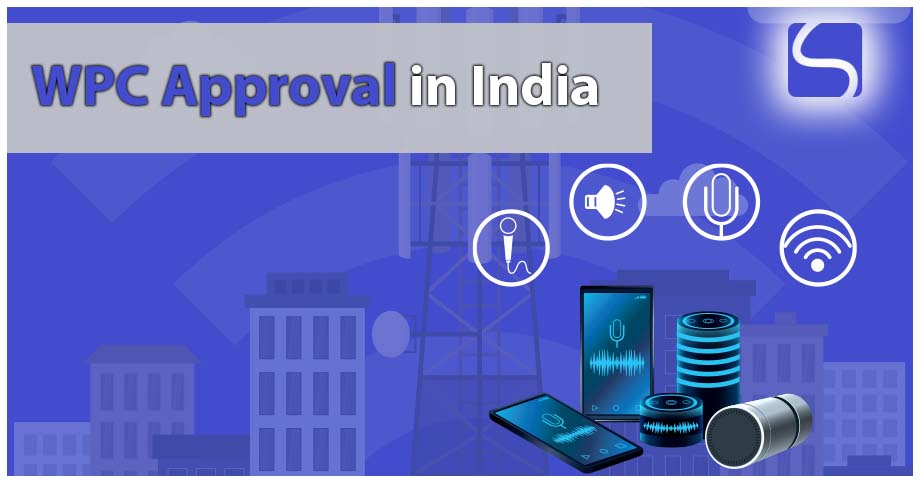Wireless Planning & Coordination (WPC) APPROVAL IN INDIA

Shivam Narwal | Updated: Mar 09, 2023 | Category: Other Services
Wireless Planning & Coordination (WPC) is a branch of the Ministry of Communications in India, which regulates the radio frequency (RF) spectrum for various applications like broadcasting, communication, and scientific research. WPC Approval is mandatory for using any wireless devices that operate on radio frequencies in India.
Table of Contents
Why is WPC Approval necessary?
WPC Approval is necessary to ensure that wireless devices do not interfere with each other and work seamlessly. It helps in:
- Preventing interference: It ensures that wireless devices do not interfere with each other, thereby reducing the chances of signal degradation or communication failure.
- Efficient utilization of spectrum: It helps in the efficient utilization of the radio frequency spectrum, which is a limited resource. It ensures that the available range is used optimally without any wastage.
- Compliance with regulations: WPC Approval ensures that wireless devices comply with the regulatory guidelines set by the government. It ensures that the devices do not cause any harm to the environment or human health.
Who needs WPC Approval?
WPC Approval is mandatory for anyone who intends to use wireless devices that operate on radio frequencies in India. This includes:
- Manufacturers: Manufacturers who produce wireless devices must obtain WPC Approvals before launching their products in the Indian market.
- Importers: Importers who bring wireless devices into India need to obtain WPC Approval before importing the products.
- Users: Users who intend to use wireless devices that operate on radio frequencies need to obtain WPC Approval before using them.
Types of WPC Approvals
There are two types of WPC Approvals:
- Equipment Type Approval (ETA): ETA is mandatory for all wireless devices that operate on radio frequencies. ETA certifies that the wireless device conforms to the technical standards set by the WPC.
- Dealer Possession License (DPL): DPL is required for dealers who sell wireless devices that operate on radio frequencies. DPL certifies that the dealer has the necessary infrastructure to sell and maintain the wireless devices.
How to obtain WPC Approval?
The process of obtaining WPC Approval involves the following steps:
- Application submission: The applicant needs to submit an application to the WPC along with the required documents and fees.
- Technical evaluation: The WPC evaluates the technical specifications of the wireless device to ensure that it conforms to the regulatory guidelines.
- Testing and certification: The wireless device is tested in a WPC-approved testing lab to ensure that it meets the technical standards set by the WPC. If the device passes the tests, it is granted ETA.
- Grant of license: Once the wireless device is certified, the WPC issues a license to the applicant.
Documents required for WPC Approval
The following documents are required for obtaining WPC Approval:
- Technical specifications of the wireless device
- User manual and technical data sheet
- Test reports from WPC-approved labs
- Authorization letter from the manufacturer (in case of importers)
- Registration certificate (in case of dealers)
- NOC from the Ministry of Home Affairs[1] (in the case of wireless devices that operate in the frequency range of 2.4 GHz to 2.4835 GHz)
Time and cost of obtaining WPC Approval
The time and cost of obtaining WPC Approval depend on the type of wireless device and the frequency range it operates. The ETA process takes around 4-6 weeks, and the DPL process takes around 2-3 weeks.
The cost of obtaining WPC Approval varies depending on the type of wireless device and the frequency range it operates in. The fees for ETA range from INR 5000 to INR 10,000, while the fees for DPL range from INR 1000 to INR 5000.
Common challenges faced in obtaining WPC Approval
Some common challenges faced in obtaining WPC Approval include:
- Lack of clarity: The regulatory guidelines set by the WPC can be complex, and applicants may face difficulty in understanding the requirements.
- Testing and certification: Testing and certification of wireless devices can be time-consuming and expensive, especially for small-scale manufacturers.
- Approval delays: The approval process can be time-consuming, and applicants may face delays in obtaining the necessary approvals.
- Frequency allocation: The allocation of the radio frequency spectrum can be complex, and applicants may face difficulty in obtaining the necessary frequencies.
Importance of WPC Approval for Wireless Devices
Wireless devices have become an integral part of modern-day communication, and the demand for such devices has been increasing exponentially in recent years. In India, the Wireless Planning & Coordination (WPC) regulates the use of radio frequencies for wireless devices, and obtaining WPC Approval is mandatory for using such devices. Let’s discuss the importance of WPC Approval in more detail.
Prevention of Interference
WPC Approval helps prevent interference between wireless devices operating on the same frequency. Interference can cause communication failure or signal degradation, leading to a poor user experience. In addition, interference can disrupt the functioning of other critical wireless devices, such as those used in hospitals or airports, which can have serious consequences. Therefore, obtaining WPC Approval ensures that wireless devices function seamlessly and without any disruption.
Efficient Utilization of Spectrum
The radio frequency spectrum is a limited resource, and it is crucial to utilize it efficiently. WPC Approval ensures that the radio frequency spectrum is utilized optimally, without any wastage. By ensuring that only approved wireless devices are used, WPC Approval helps in regulating the frequency spectrum’s usage, thus making sure it is available for other critical applications like broadcasting and scientific research.
Compliance with Regulatory Guidelines
The government has set regulatory guidelines for the use of wireless devices in India. WPC Approval ensures that wireless devices comply with these guidelines. Compliance with regulatory guidelines ensures that wireless devices do not cause any harm to the environment or human health. Additionally, it ensures that the wireless devices meet the technical standards set by the WPC.
Conclusion
WPC Approval is a crucial requirement for the use of wireless devices that operate on radio frequencies in India. The regulatory guidelines set by the WPC ensure efficient utilization of spectrum, prevent interference and ensure compliance with technical standards and regulatory guidelines. While the process of obtaining WPC Approval can be time-consuming and challenging, it is necessary to follow the regulatory guidelines and submit the required documents. The technical evaluation, testing, and certification ensure that the wireless devices are safe to use, meet the technical standards set by the WPC, and comply with the regulatory guidelines.
The importance of WPC Approval cannot be overstated, as it ensures that wireless devices function seamlessly, without causing interference or disruption. Additionally, it ensures that the radio frequency spectrum is utilized optimally, without any wastage, and that wireless devices comply with the regulatory guidelines. The challenges faced in obtaining WPC Approval, such as lack of clarity, testing, certification, and approval delays, can be mitigated by seeking expert guidance and ensuring that all necessary documents and fees are submitted correctly. The benefits of obtaining WPC Approvals far outweigh the challenges, and it is a mandatory requirement for the use of wireless devices in India.
In conclusion, WPC Approvals is essential for the safe and efficient operation of wireless devices, and it is crucial to follow the regulatory guidelines set by the WPC. By obtaining WPC Approval, we can ensure that our wireless devices function seamlessly, without causing any interference or disruption, and comply with the regulatory guidelines, making India a safe and efficient place for wireless communication.














